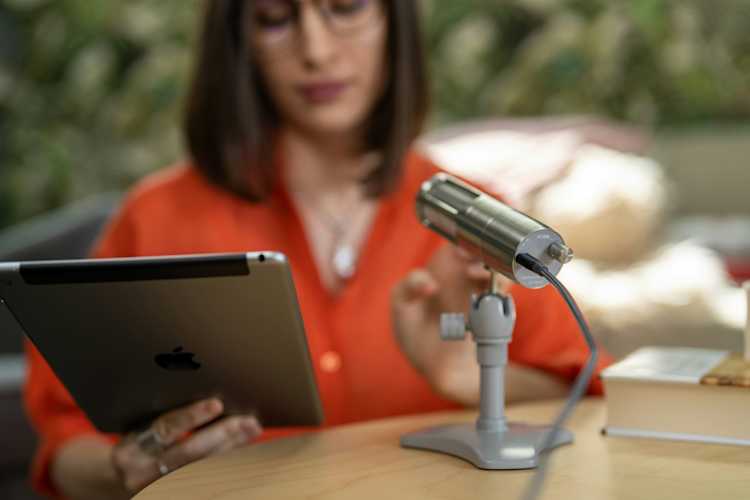Creators & Entrepreneurs
What Is a Digital Entrepreneur?
Learn what digital entrepreneurship is, different types of digital entrepreneurs, and how to become one.
Author
Mighty Team
Last Updated
February 6, 2025

What do Doug Neill, owner of Verbal to Visual, who offers memberships and courses for visual learners; Sadie Robertson Huff, owner of Live Original, who has an app, podcast, and hosts events for young women looking for deeper faith and personal growth; and Ashley Fox, owner of The Wealth Builders Community, who offers memberships to those looking to build wealth all have in common? They are all digital entrepreneurs.
As the world changes and evolves, so does entrepreneurship. If you have a great idea, want some time freedom and appreciate a flexible lifestyle, being a digital entrepreneur might be the right fit for you.
Here’s what we’ll cover in this article:
What a digital entrepreneur is.
Types of digital entrepreneurs.
The perks of being a digital entrepreneur.
How to become a digital entrepreneur.
What is a digital entrepreneur?
A digital entrepreneur is someone who runs their business online. There’s no one type of digital entrepreneur; it can range from being an online course creator or virtual assistant to being a blogger or podcaster. Digital entrepreneurs can sell services like business coaching, digital products like e-books, or physical products like candles. The opportunities are endless.
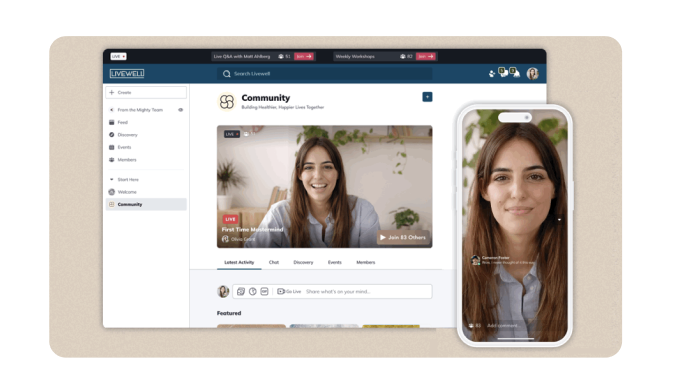
Being a digital entrepreneur often doesn’t require fancy equipment; you might only need a laptop. You can use social media to build awareness about your brand, set up a website, and use email marketing to nurture and build a relationship with your audience. And the best part of digital entrepreneurship is that you can earn the money you’d make in a business without the overhead of physical needs like a storefront.
Digital versus traditional entrepreneurship
The thing that differentiates a digital entrepreneur from a traditional entrepreneur is where they operate. Traditional entrepreneurs operate a physical business — like a storefront or pop-up shop. There are advantages and disadvantages to both.
The biggest upside for digital entrepreneurs is that they don’t need a lot of funding to start their business (you don’t need outside funding to start and can bootstrap your business) and their expenses are fairly low. The challenges to being a digital entrepreneur are:
You compete with the whole world (instead of your geographic area)
You need to work harder to build trust and a reputation
Potential customers can’t see your product for themselves and must rely on reviews.
Digital entrepreneurs might also have a harder time “turning off” and setting business hours for themselves since they can work at any time and anywhere…even their couch, which could lead to burnout.
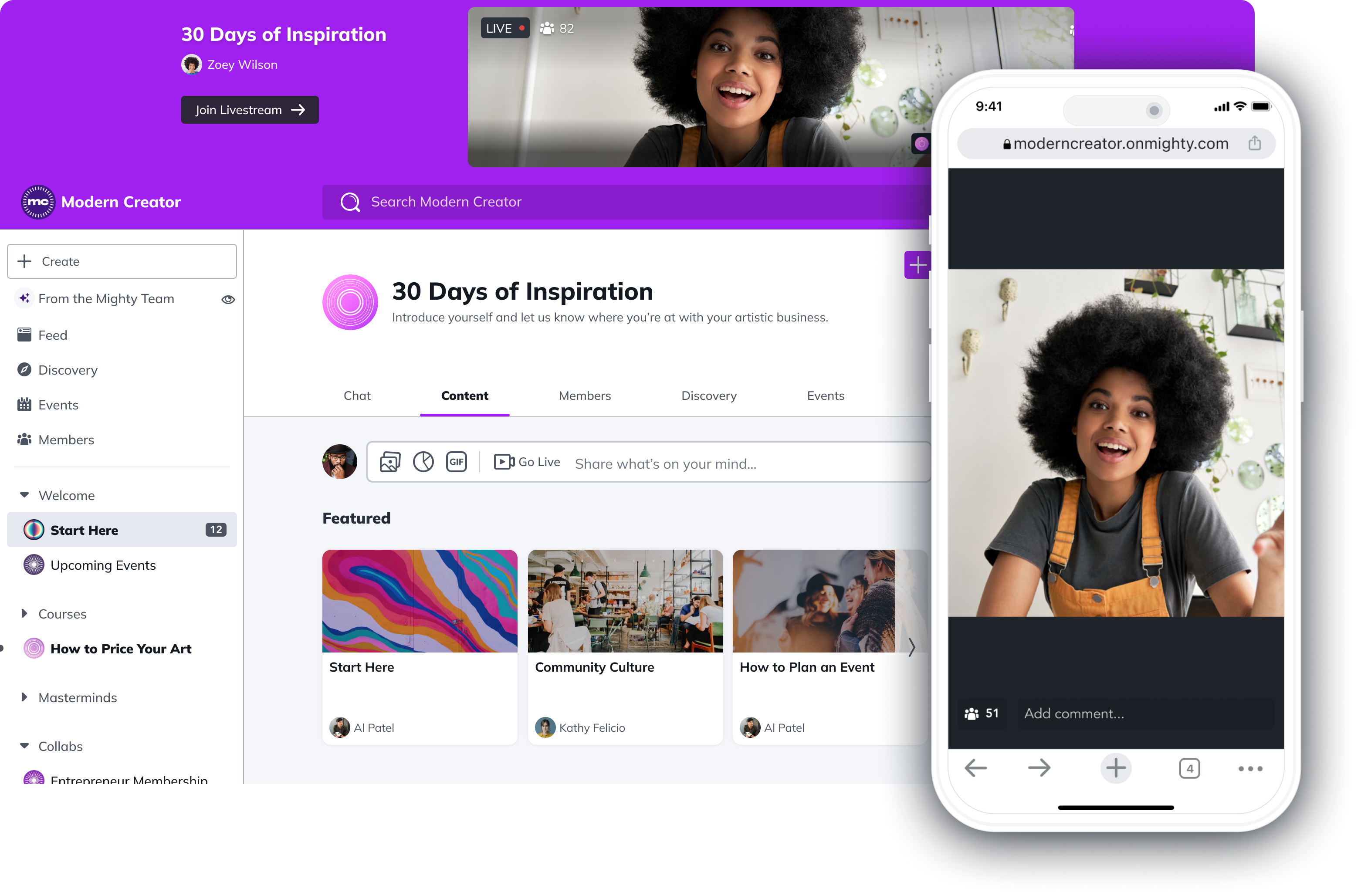
Traditional entrepreneurs can use digital tools too, for example, leverage social media to build awareness about their business. If they have a storefront, they also have the advantage of foot traffic — someone passing by, seeing that amazing red dress in the window and thinking, “I have to have that!”
Traditional entrepreneurs also have set business hours so may be less inclined to burnout. But of course, the biggest disadvantage to being a traditional entrepreneur is that they require more funding to set up their storefront and incur greater expenses to maintain their business than digital entrepreneurs.
Types of digital entrepreneurs
As you can imagine, there are so many examples of what digital entrepreneurship can look like, especially as new tools and technologies are released, which means the possibilities are endless. These aren’t mutually exclusive examples either; a lot of digital entrepreneurs combine these cases to diversify their offerings. Here are some common types of digital entrepreneurs.
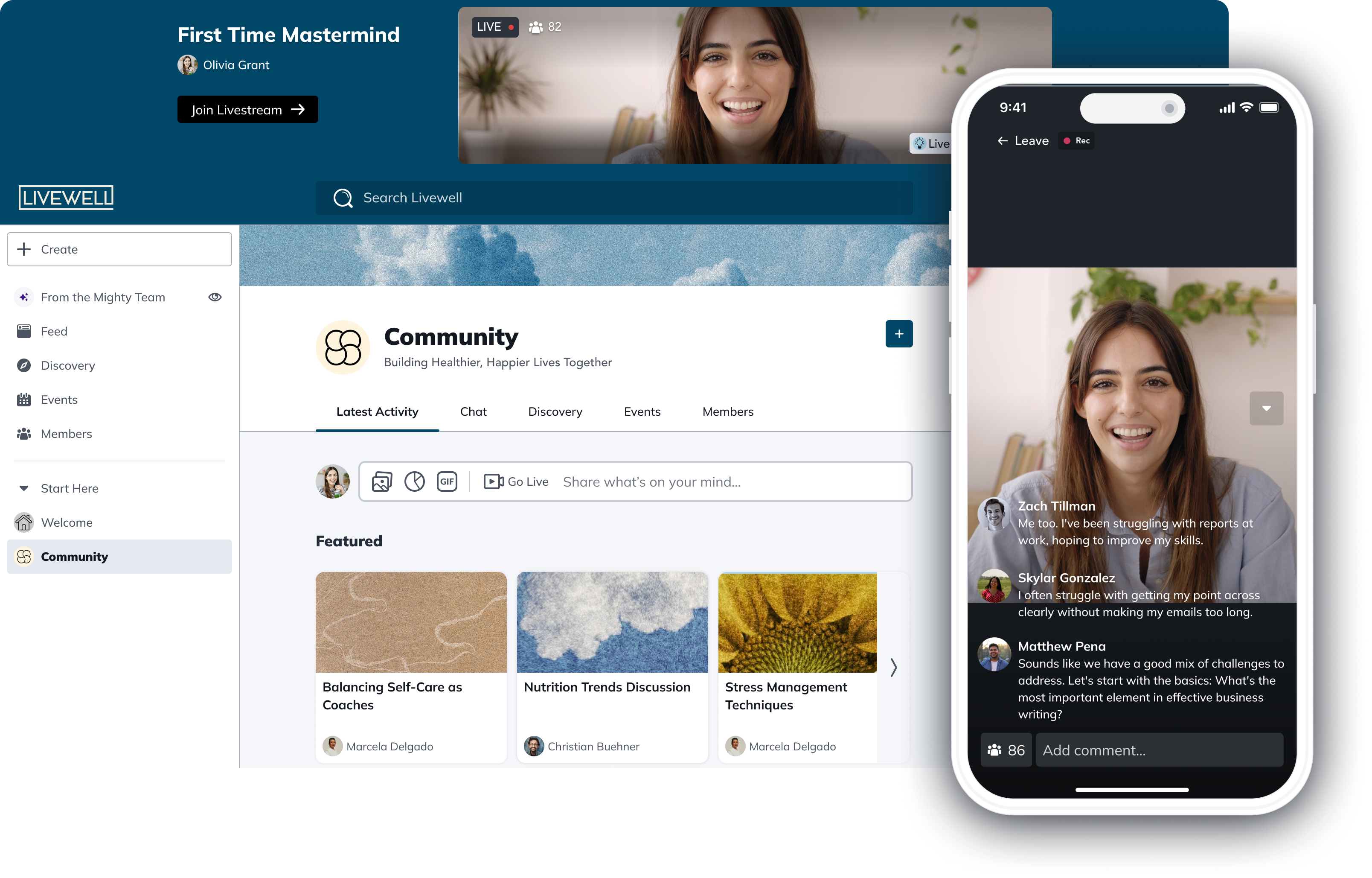
Community Hosts
We know a thing or two about building an online community. One great way digital entrepreneurs can build a community is through their passion. Take, for instance, ArtSnacks Mix built around the joy of painting, or the Outwild Hub is a community for outdoor enthusiasts who want to make the outdoors a bigger part of their lives.
Communities are becoming thriving digital businesses–and we’re seeing them scale to 6-, 7-, and even 8- figures!
Digital entrepreneurs can make money from their community simply by creating a membership fee for the community. They can also host live events, launch a branded app, and create a course that they offer exclusively to their community members.
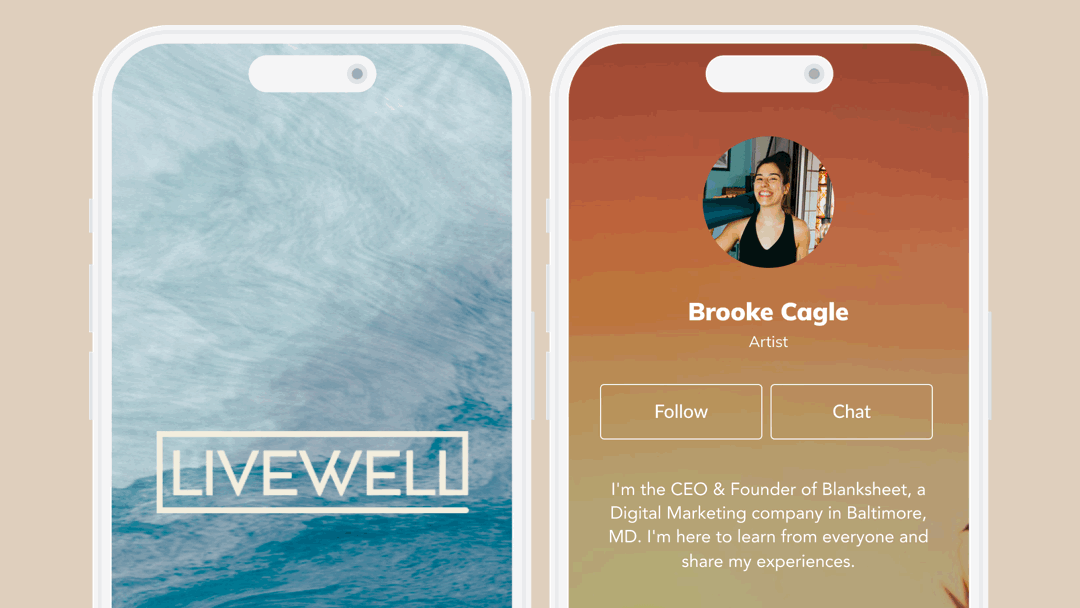
And there are a ton of different types of online communities to choose from. Here are some examples:
Mastermind groups: Members come together to share their expertise and transform their businesses or lives.
Group coaching: A community hosted by a coach who brings members together for a transformation (e.g. holistic wellness coach).
Micro-community: You don’t need a large community to make a big impact. It only takes 30 people or less who are committed to mastering a special topic, interest, goal, or passion.
Content community: Members come together to create and/or to learn to create content and share their experiences.
Online brand community: This type of community experiences member-led growth by people who are excited to talk about a brand or product. Take, for example, the QuickBooks community, a place for people who use the product to get the knowledge they need.

Blogger
If you love to write and have something to say, starting a blog might be a great segue into digital entrepreneurship. Once you’ve found your niche and chosen a name for your blog (make sure to check out our Blog Name Generator) it’s time to provide value. Bloggers like Seth Godin and Neil Patel share a ton of value by offering marketing wisdom to their readers.
Contrary to popular belief, you don’t need a ton of traffic to monetize your blog. However, you do need a plan (because your blog shouldn’t be your diary). You also need to be persistent and have patience.
Bloggers can earn money in numerous ways, like:
Affiliate marketing: When you mention products on your blog and someone clicks a brand-approved tracking link, you can earn commissions.
Ads: When you allow other businesses to advertise on your blog, you get paid. Ads can be paid per ad or pay-per-view (also known as revenue per mille – RPM).
Sponsorships: If you’re getting enough traction, businesses can offer to pay you a fee to create a sponsored blog post.
Bloggers can also earn money by selling a course, e-books, or merch on their blog.
Of course, the methods of creating written content are always evolving, with some choosing to create posts on places like Twitter or LinkedIn instead of a traditional blogging platform.
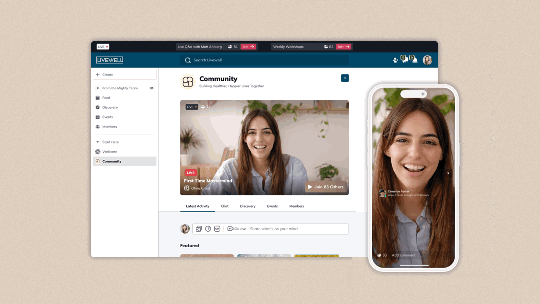
Podcaster
It’s never been easier to start and grow a podcast! There are so many big names out there making bank from podcasting, like “Armchair Expert,” “Call Her Daddy,” “Office Ladies,” and “Freakonomics Radio.”
Even as you’re getting started with building a community that loves your work, you can still earn money from podcasting. Similar to blogging, you’ll want to find your niche (not just something popular but something you’re passionate about), have a solid name (use our Podcast Name Generator), and create a plan for releasing new episodes, driving engagement, and lining up guest speakers. Remember growing your fanbase takes time. Be patient and stay consistent.
Podcasters can make money through:
Paid communities: Listeners pay access to premium content like videos, Q&As with special guests, early access to episodes, and private groups. Some podcasters monetize with a community by selling tiered memberships.
Creating courses: If your podcast is educational or teaches listeners new skills, creating a course is a great way to earn money from your podcast. Just look at Gretchen Rubin, who has a self-development podcast, “Happier with Gretchen Rubin.” She has self-improvement courses that match the theme of her podcast like, “Outer Order, Inner Calm,” and “30-Day Relationship Challenge.”
Affiliate marketing: With affiliate marketing, podcasters receive a commission every time one of their listeners purchases a service or product mentioned in an episode. This is tracked using a discount code (members are usually offered 10-15% off the service or product, which gives them more incentive to buy).
Sponsorships: You know those commercial breaks that pop up while you’re listening to a podcast? That’s a sponsorship. These differ from affiliate marketing because you get paid just to mention the brand (e.g. a flat fee to talk about them for seven episodes), even if your listeners never spend a cent on them.
Live events: A lot of popular podcasts, like “Giggly Squad,” have built up such a huge fanbase that they go on live tours. Even if your audience isn’t as big, consider hosting a local live event at a restaurant, brewery, or even a bookstore.
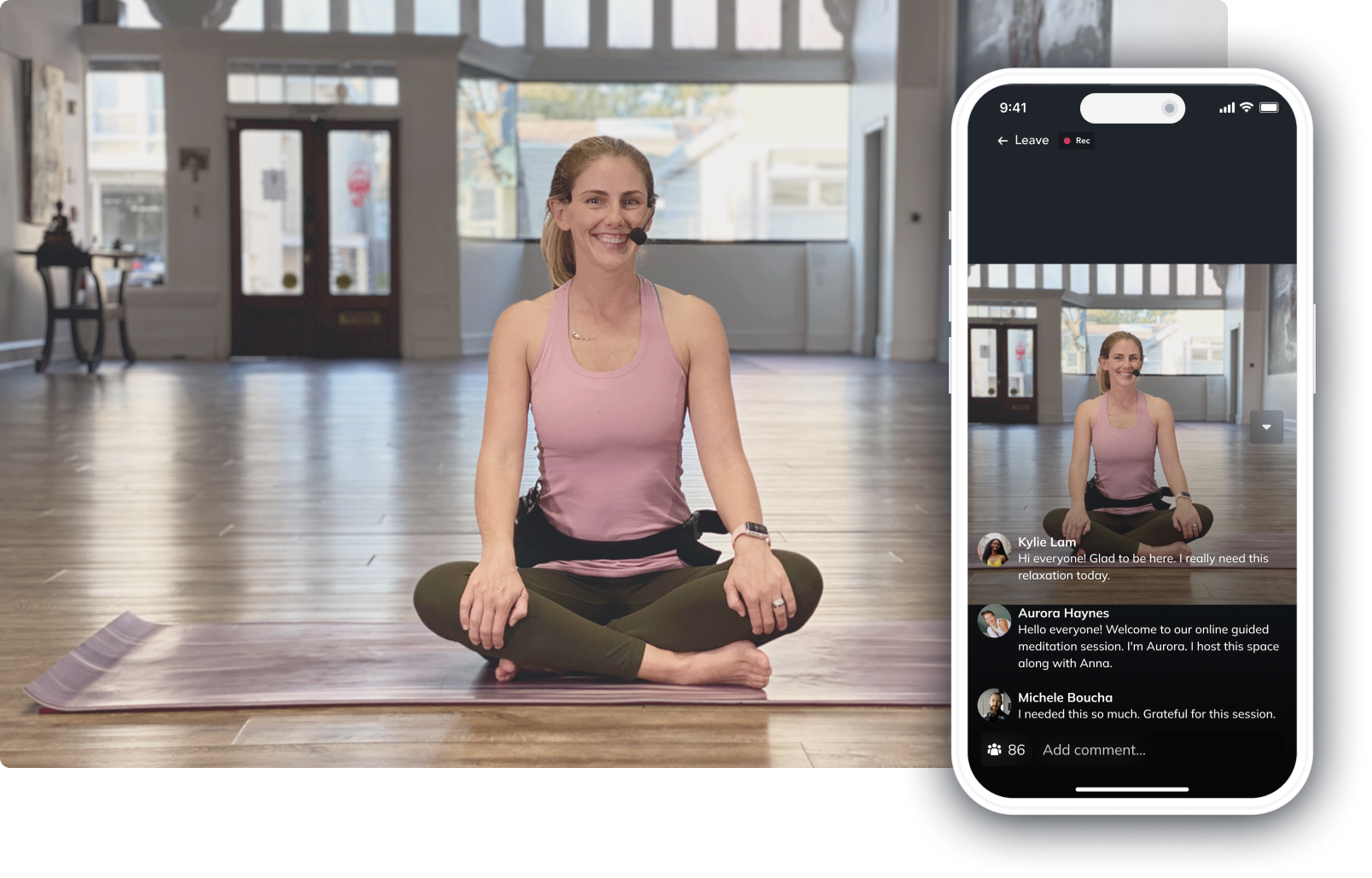
YouTuber
YouTube is the world’s second-largest search engine (and is owned by Google–the biggest), and top YouTubers like PewDiePie, Markiplier, and Like Nastya earn anywhere from $28 million to $38 million per year!
While there’s a ton of competition on this platform (over 720,000 hours of video uploaded every day), the secret to building a YouTube following is having a really strong niche and creating content in that niche. Just like with blogging and podcasting it takes a lot of grit and patience to build a following on YouTube.
Here’s how YouTubers make money:
Ads: In order to be approved for ads, you have to hit a minimum target – 4,000 watch hours in the last 12 months and 1,000 subscribers. This isn’t the best way to earn money, but it is how YouTubers with huge followings make money.
Channel memberships: Like with ads, you’ll need to have more than 1,000 subscribers and be in the YouTube partner program. You can then offer member perks like badges, emojis, live chats, and more.
Affiliates: YouTubers receive a commission every time one of their viewers purchases a service or product mentioned in a video (affiliate links located in the description of the video).
Merch: If you have a recognizable brand, you can sell merch.
Selling services: Let's say you're a fitness coach, you could give fitness tips on your YouTube channel and connect it to your fitness coaching business.
You can read more about how much YouTubers earn per view here.
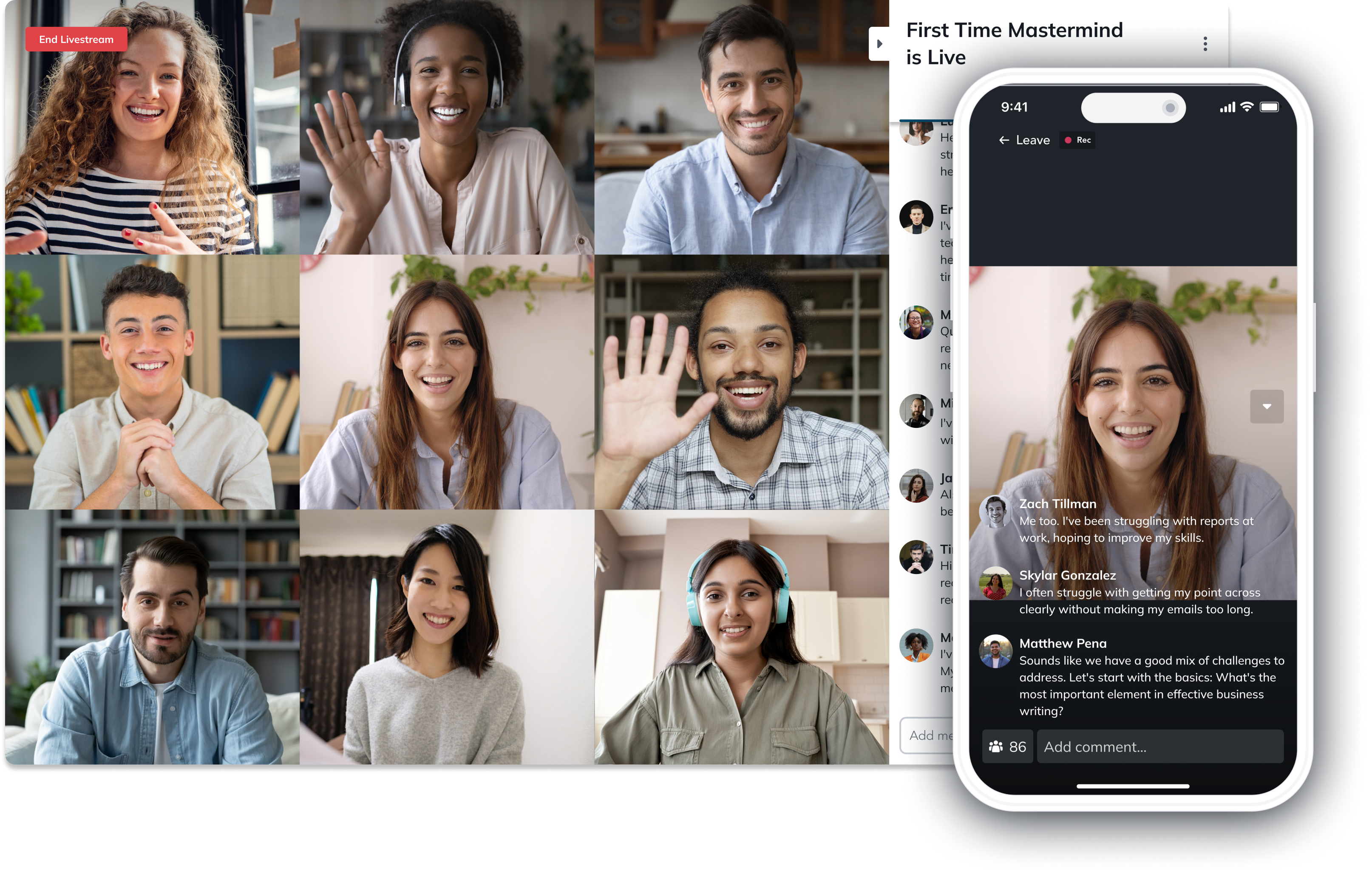
Consultant
If you’re an expert in solving a problem, consulting can be a great way to get paid for it. You can lend your expertise to organizations that need it, creating your content on LinkedIn and YouTube as a type of advertising. Having some solid testimonials from previous clients and statistics that show your value will also legitimize you as a consultant. Consultants can work either on an hourly retainer or by deliverables, with top consultants charging thousands of dollars for their time.
Consulting ranges from providing the client with information to helping clients permanently improve their organization. They can help organizations with their marketing, sales, informational technology, emotional intelligence, diversity and inclusion efforts, and even with mitigating conflicts.
The best part is that digital entrepreneurs can consult from anywhere around the world.
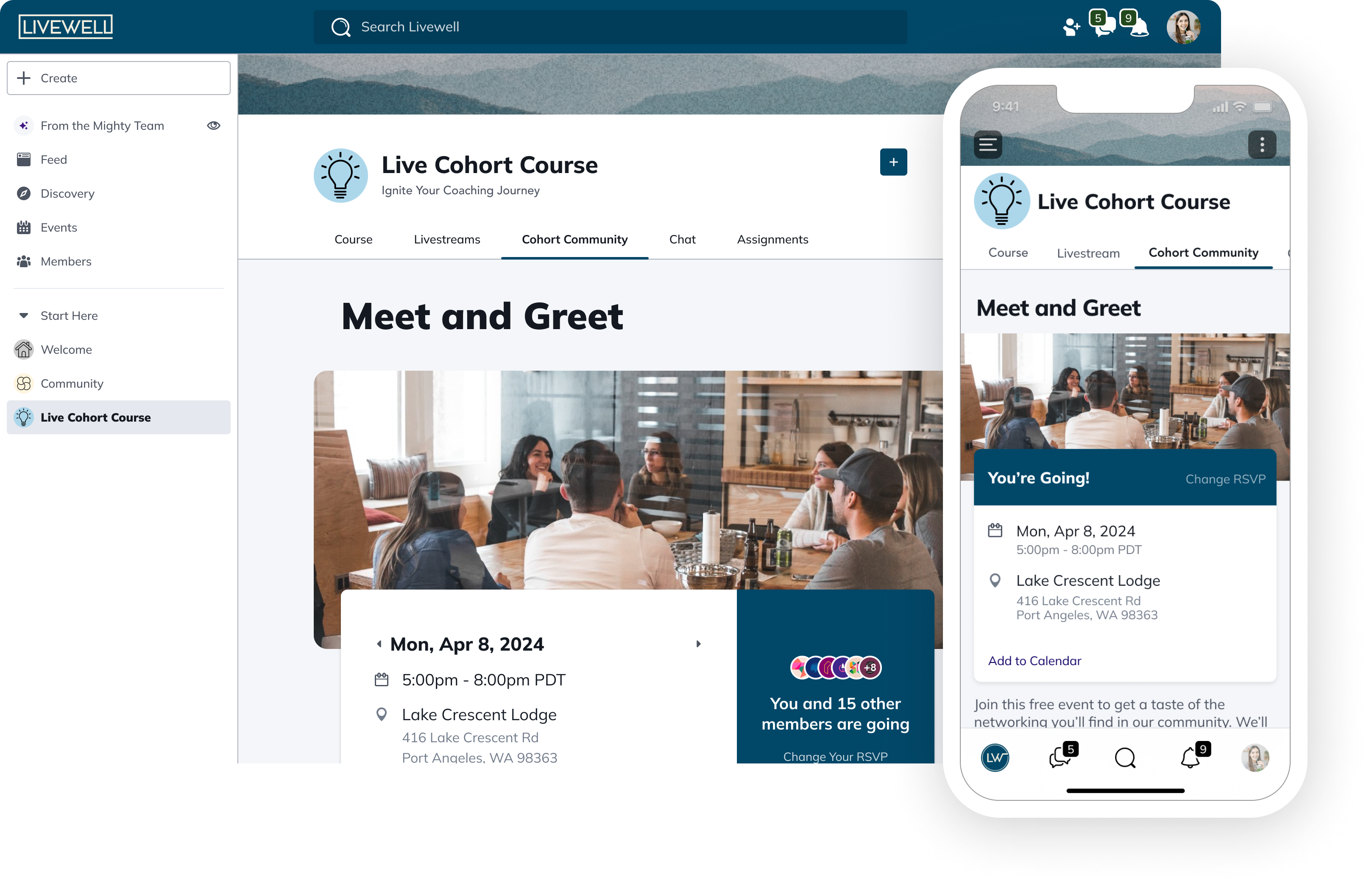
Subscriptions
Digital entrepreneurs can start an online subscription business and offer subscriptions. This model is similar to an online community but more passive; subscribers simply consume content, software, or products that you’ve created or licensed. Think of software companies like Dropbox and Zoom, ones delivering content like Hulu and Netflix, or even ones that involve physical products like HelloFresh – they’ve built empires around subscription services.
Here’s how digital entrepreneurs can take advantage of subscriptions:
A premium content business: When people pay every month and get access to content (e.g. fitness videos).
A monthly product: Some businesses have offered subscriptions for necessities like razors and soaps to more decadent items like wine and chocolate.
The great news is that this is potentially recurring revenue if you can make your repeat business idea work for you.
Newsletters are also becoming a huge part of the subscription economy.

E-commerce
E-commerce isn’t just a fad; in fact, it’s only going to get bigger and projected to hit $3.6 trillion in value in 2024. The great thing about e-commerce is that it isn’t just for large corporations, it’s for everyone, including digital entrepreneurs.
There are numerous platforms to sell on, like Amazon and Alibaba, or if you’re more creative, there’s Etsy. There’s also Shopify for digital entrepreneurs who want a platform where they can build an online shop they own.
The options for what digital entrepreneurs can sell are limitless, from physical products like shoes, mushroom lamps, and art, to digital products like printables, e-books, apps (which are projected to hit $755.5 billion by 2027), and online courses. Digital products are advantageous because they’re endlessly scalable, generate recurring revenue, and can be easily automated.
Course creator
There’s no denying that online learning has skyrocketed in the past few years. Thanks to online course platforms it’s never been easier for digital entrepreneurs to transform their knowledge and expertise into an awesome learning experience that anyone in the world can take. In fact, courses can be so lucrative that we saw a podcaster and author on Mighty sell 5,000 seats to a $997 course in just 10 days.
Your online course can be about practically anything, from 2D animation to learning how to draw. Courses can be pre-recorded (asynchronous learning) or taught live (synchronous learning) and both can be scaled, because even when you teach live, you can teach to thousands of people.
Of course, we’re not saying that building a course is easy — you need to find a niche, build your course, and then market it. Profitable niches are a combination of being relatively popular, in which people are currently taking courses in, and are willing to spend money on.
Some of the most profitable online course niches include B2B, entrepreneurship, fitness, marketing, and wellness.
You can also check out our list of online course ideas here!

Host a virtual event
One of the best things about a virtual event is the convenience — for both the host and the participants. You don’t have to worry about a building’s capacity or logistics like parking or having an alcohol license, and participants don’t have to be concerned with travel time or even their attire.
There’s so much room for fun with virtual events as long as there’s a clear message that will motivate and excite people to attend. That means explaining the how, what, and why around the valuable experience attendees will get. We call this the Big Purpose.
Next is about identifying your Ideal Member, by asking:
Where do they come from?
What do they care about?
What are they struggling with?
What transformation would make them come alive?
The downside of virtual events is that connecting participants isn’t as seamless as in-person. That’s why it’s important to create opportunities for connections like:
Breakout rooms
Group projects or using the whiteboard
Open text questions and discussions
Q&A session
You can host events at any interval, from yearly to several times a month. The sewing community Topstich Makers hosts weekly sew-alongs for people to work simultaneously on a project.

Why become a digital entrepreneur?
Clearly what you can offer as a digital entrepreneur is infinite. But beyond offering something valuable, you might be wondering what else is in it for you?
Flexibility
Unlike a 9-to-5, being an entrepreneur means you get to dictate your schedule. You can work four days a week if you want or take a longer lunch, all without asking for permission. Being a digital entrepreneur gives you even more freedom than a traditional entrepreneur, because you’re not tied to a physical location. Digital entrepreneurs have the flexibility of working from anywhere in the world, from Boston to the Bahamas and living that #digitalnomad life.
Scalability
Scaling your business means increasing your customer base and revenue at a faster rate than just increasing its costs. There’s no one-size-fits-all when it comes to scaling your business, it really depends on the stage of your business. But, when you have the right foundation in place and then build a long-term, sustainable strategy for growth, the sky's the limit!
Amazon is an example of a limitlessly scaling tech company. What started off as a bookstore transitioned into an online marketplace software that grew with the network effect — getting more valuable with each user. It’s now worth $1.8 trillion.
When businesses think of scaling, their minds go to courses. With a projected value of $62 billion by 2027, there’s a good reason that this original scalable online product is still a go-to option for scalability. Scaling for a coach can look like going from only providing 1:1 coaching services to offering engaging courses.
One idea that entrepreneurs tend not to think of for scaling their business are virtual events. The hardest part is actually creating and hosting your first virtual event. But once you’re past that hump and have received feedback from participants, you can easily refine it and host more. Plus when your virtual event combines either high value or high entertainment (or both), people are willing to pay and show up! Pick a virtual event platform that lets you build and scale easily.
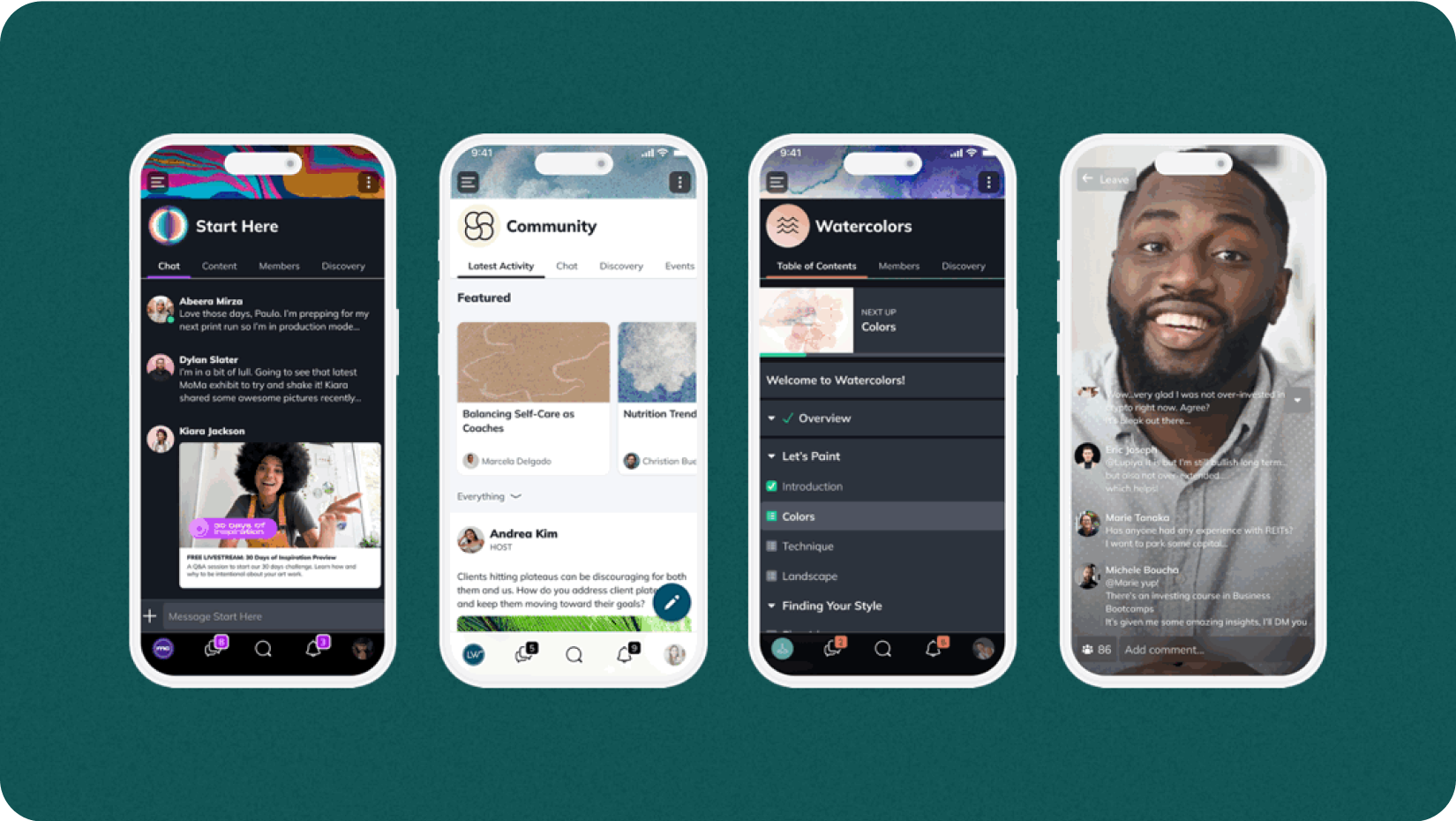
Accessibility
Not only can you work from anywhere, you can also reach anyone from around the world. Unlike a traditional entrepreneur, who can only reach those in their geographic area, online businesses are not confined to one area.
With a top-notch digital marketing strategy, you can reach your target audience. Use social media to your advantage, create blog posts that will get in front of your target audience’s eyes through search engine optimization (SEO), provide valuable content for your audience, and use email marketing to bring more people to your website.
Adaptability
Being able to adapt to market changes is actually beneficial — keeping your creative juices flowing and trying out new things so you’re never bored. If you find that there’s not as much demand for your services, you can quickly adapt your offerings to your target market’s needs. Unlike a large corporation, you can easily change or tweak your services and pricing without losing too much time and money.
Obviously, you don’t want to have shiny object syndrome when it comes to entrepreneurship (offering the latest and greatest just because it’s trending), but you do want to listen to what the demand is.
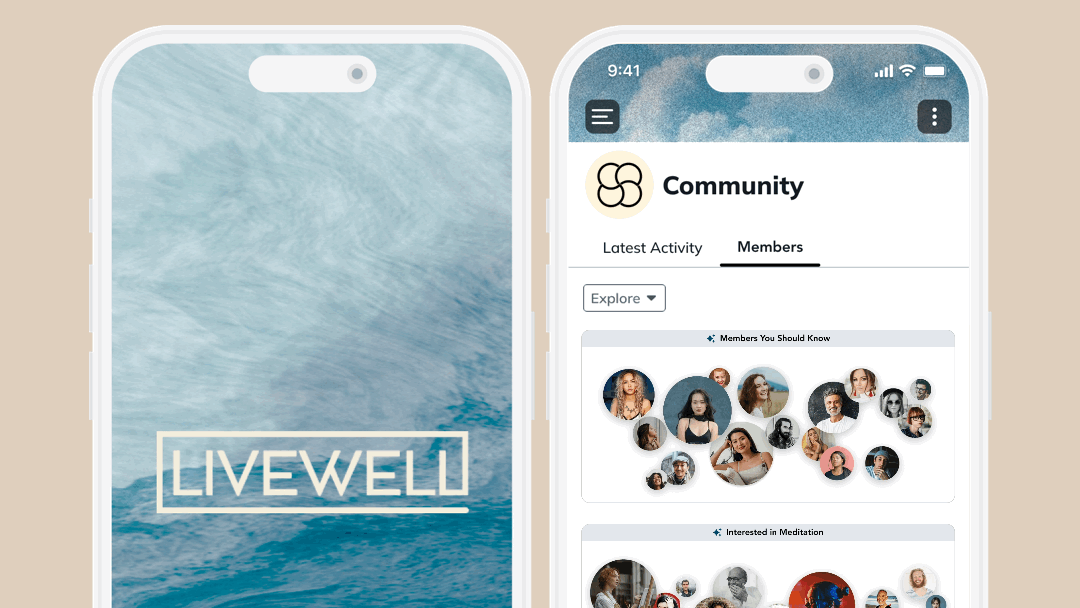
Profitability
We’re not saying that when you jump into entrepreneurship you’re going to make $100k in your first year, but since your expenses are low your potential for earnings are essentially limitless — cha-ching.
It’s all about perfecting your craft, knowing whom you’re selling to (having a niche is super valuable — that way you’re more focused and not selling to everyone), nailing the business basics when transitioning from a creator to entrepreneur, and working on your mindset (self-doubt has a nasty way of creeping up on you). Building your digital entrepreneurship part-time while working a full-time position might be the best route to gain more experience and confidence before diving in head first.
While the earning potential of digital entrepreneurship is unlimited, it’s more often the time freedom that individuals choose entrepreneurship in the first place. This could mean time spent with friends and family, more time traveling and creating new memories, and more time for yourself in general.
How to become a digital entrepreneur
The great thing about entrepreneurship is that it looks slightly different for everyone — where they run their business, how they run their business, and who their clients are. However, when you’re first starting out there are some common steps everyone has to take to become a digital entrepreneur.
1. Lay the foundation
Like building a house, building a business needs a solid foundation to work from. Every business starts with an idea or a dream or a strike of inspiration.
Global businesses like Starbucks started from an idea: two teachers and a writer pooled together their own money to open a Seattle-based coffee bean business and created what’s now one of the most well-known coffee shops in the world.
Usually, business ideas come from a need you’ve experienced or a gap you see in the market.
If you’re still stuck, here’s what else to consider:
Area of expertise: Take stock of what you know and fields you understand. Here on Mighty, we often see people building thriving businesses around things they know about. Digital entrepreneur Ryder Carrol, whose approach to bullet journaling launched a movement, a book, courses, and the community around visual organization.
Your skills: Starting from your strengths is a great way to become a digital entrepreneur. Essentially, you want to be working in your zone of genius, not on the things that feel really hard to do (e.g. don’t become a coach if your people skills aren’t that great).
Your passion: You know those subjects you just can’t get enough of or the topics you can’t stop talking about? What about the things you do just for fun? All of the things will point towards your passions.
Here are some questions you can ask yourself to gain clarity around your digital entrepreneurship venture:
What do I know about X topic?
What problems have I successfully solved for myself?
What problems have I successfully solved for others?
What could I teach someone who is just starting out?
Why do I want to be a digital entrepreneur?
What do I bring to the table? What’s my unique perspective?
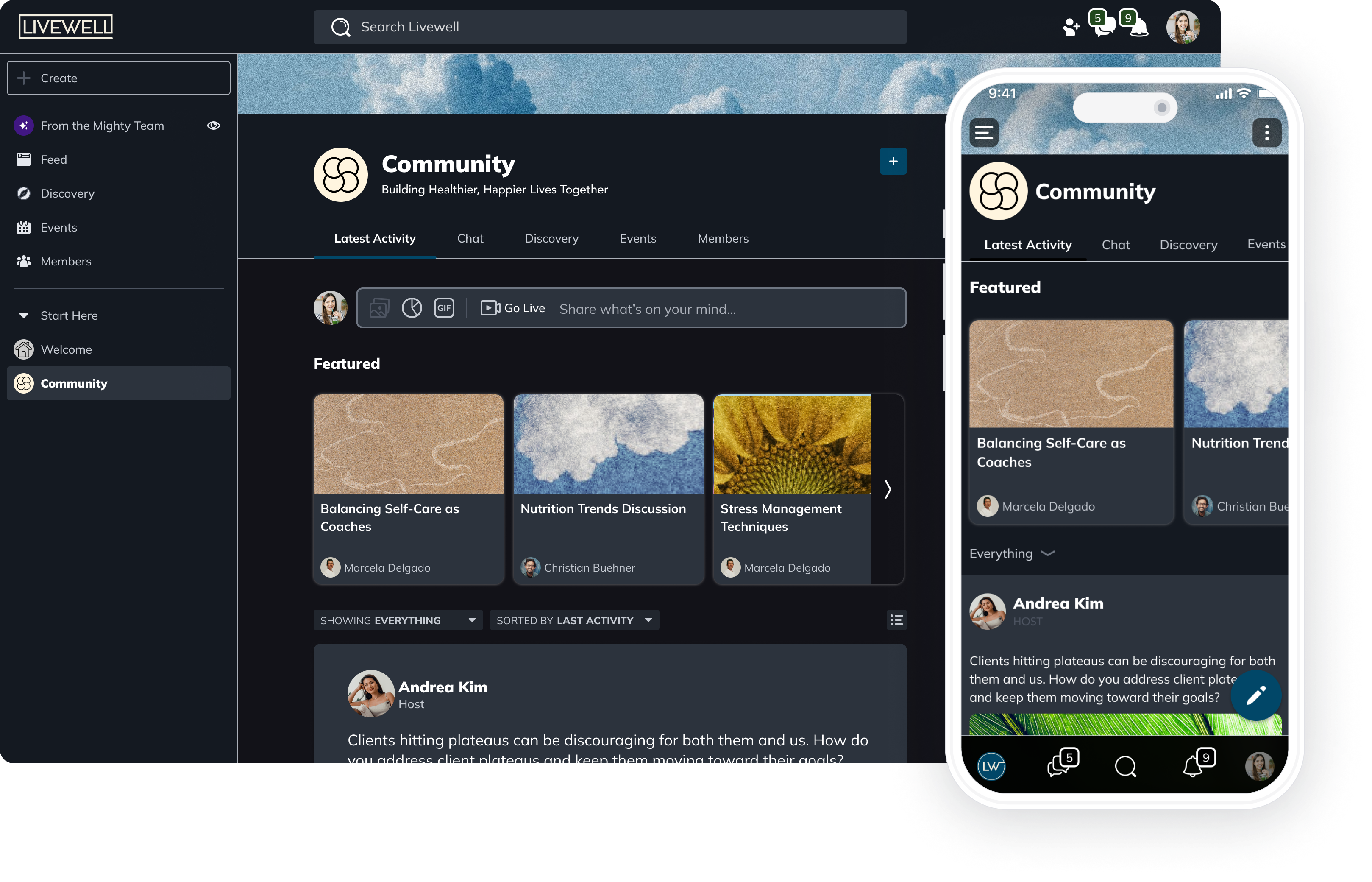
2. Find your ideal customer
You’ve probably heard the saying, “When you sell to everyone, you sell to no one.” And it’s true. You can’t possibly be everything to everyone so you have to figure out who you plan to serve.
You also have to ask yourself, “What problems will I help them solve?”
People buy products and services for a reason, whether it’s to gain more inner peace, find a partner, or just feel better about themselves, they’re looking for a transformation.
Here’s what to think about when it comes to your ideal customer:
Demographic, geographic, and psychographic characteristics.
Life states and transitions (e.g. new parents, first-time home owner, parents who are empty nesters, pivoting careers).
Their hopes and dreams.
Fears, misconceptions, and challenges from them accomplishing their goals.
You can go even further and do some market research, whether it’s through a survey, group Q&A, or a one-on-one interview, ask potential customers these questions to get a better understanding of what they need:
What challenges are you currently facing with X?
What are some struggles you have accomplishing X on your own?
What services or products have helped you with your problems?
What services or products have you used that didn’t help you with your problems?
3. Test out your ideas
Once you have a better understanding of what your ideal customer wants and needs, you can now create a product or service to match.
If your ideal customer wants to find a romantic partner but they struggle with their confidence and putting themselves out there, brainstorm all the ways you could help them.
These could include:
An online event for singles to mingle.
A course teaching them how to step outside their comfort zone to meet new people so they find a partner.
A 1:1 matchmaking service.
A group coaching program for single women - each week is a new topic related to loving yourself and finding your perfect match.
An ebook all about developing self-confidence and how it helps in every area of their life, including love.
After coming up with as many ideas as you can, it’s time to test them on your ideal customers. See which ones they find interesting versus which ones they’re not so thrilled about.
Check out our Business Name Generator to create an unforgettable business name.

4. Figure out business requirements
We won’t go into too much of the nitty-gritty here, but just like traditional entrepreneurs, digital entrepreneurs still have to follow the rules and regulations of business ownership.
Basically, you need to understand how to make sales, collect relevant taxes, and report to the government. You’ll also need to sort out proper invoicing and claiming taxes at year-end. You can ask other digital entrepreneurs how they invoice (which software they use) and use accounting software or an accountant to help with taxes.
5. Ensure marketing works together
Now that you have everything in place, it’s time to put yourself out there! You don’t necessarily need a website (especially if you’re selling services) but it definitely makes you look more legit. There’s no question as to whether you should market your business through social media. It’s free, and it’s easy to create content and grow and monetize your audience. It’s just a matter of choosing the right ones — go where your ideal customers hang out the most.
Next, you could set up your email marketing. One way to grow your email list is by creating a freebie (also known as a lead magnet) so that in exchange for it you collect email addresses.
Or start a community! We find that a powerful community kills the need for a traditional sales funnel and becomes a community flywheel business that grows itself.
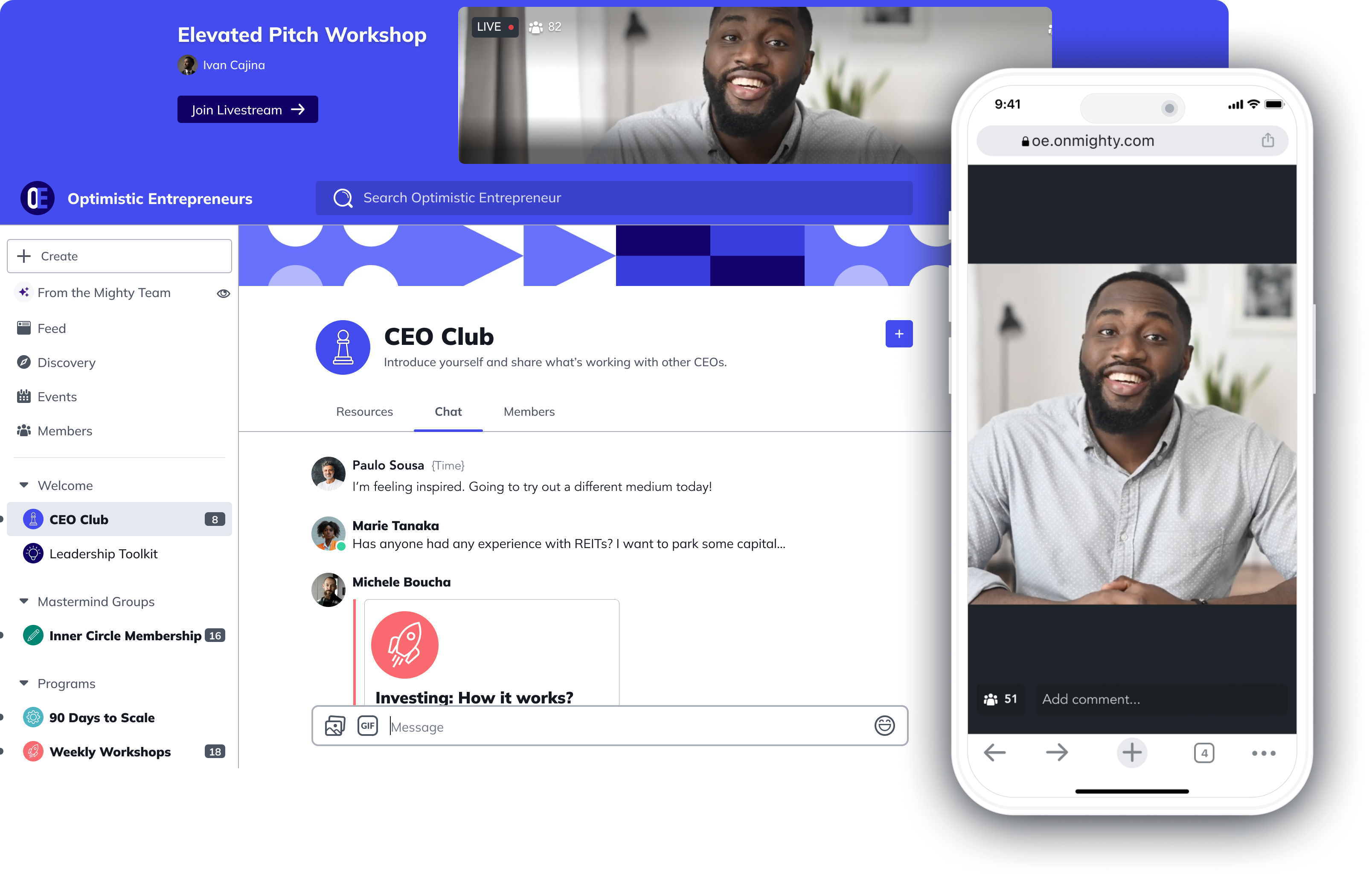
Digital entrepreneurs need the right platform
Digital entrepreneurship is vast, but we hope you feel inspired to explore this ever-expanding field.
If you’re considering digital entrepreneurship to create content, a community, courses, events, and/or commerce, come build with Mighty! We’re an all-in-one digital entrepreneurship platform for memberships that lets you livestream, teach live and pre-recorded courses, host discussions, and live events where participants can chat and message with each other.
You can also monetize in 135 different currencies and collect payments right on the platform.
Ready to start building your community?
Start a free 14-day trial to explore Mighty—no credit card required.
More like this
Join Mighty Community
Learn the principles of Community Design™ (and see them in action) alongside thousands of creators and entrepreneurs. It's free to join!

Online Courses
Creating a Course
Teaching a Course
Course Platforms
Selling a Course
Communities & Memberships
Community Platforms
Managing a Community
Building a Community
Growing a Community
Monetizing a Community
Content Creation
Creators & Entrepreneurs
Monetization
Content Creation
Starting a Business
Website Builders
Creating & Managing a Website
Events
Event Platforms
Hosting & Marketing Events
Branded Apps
Creating a Mobile App
Coaching Apps
Community Apps
Coaching
Mastermind Groups
Starting a Coaching Business
Coaching Platforms
Filter by Category
Online Courses
Communities & Memberships
Creators & Entrepreneurs
Events
Branded Apps
Coaching
Start your free trial
14 Days. No Credit Card Required.



